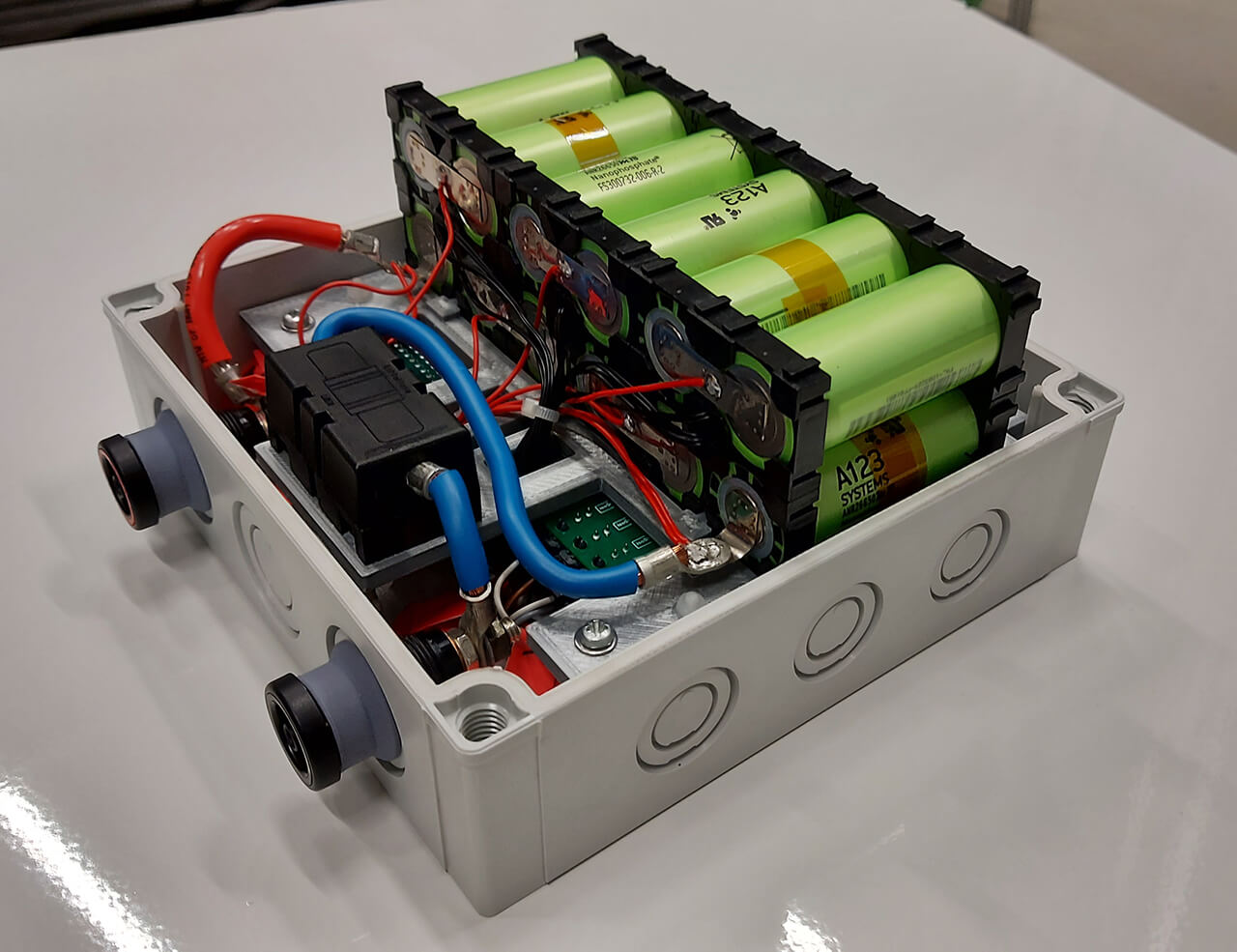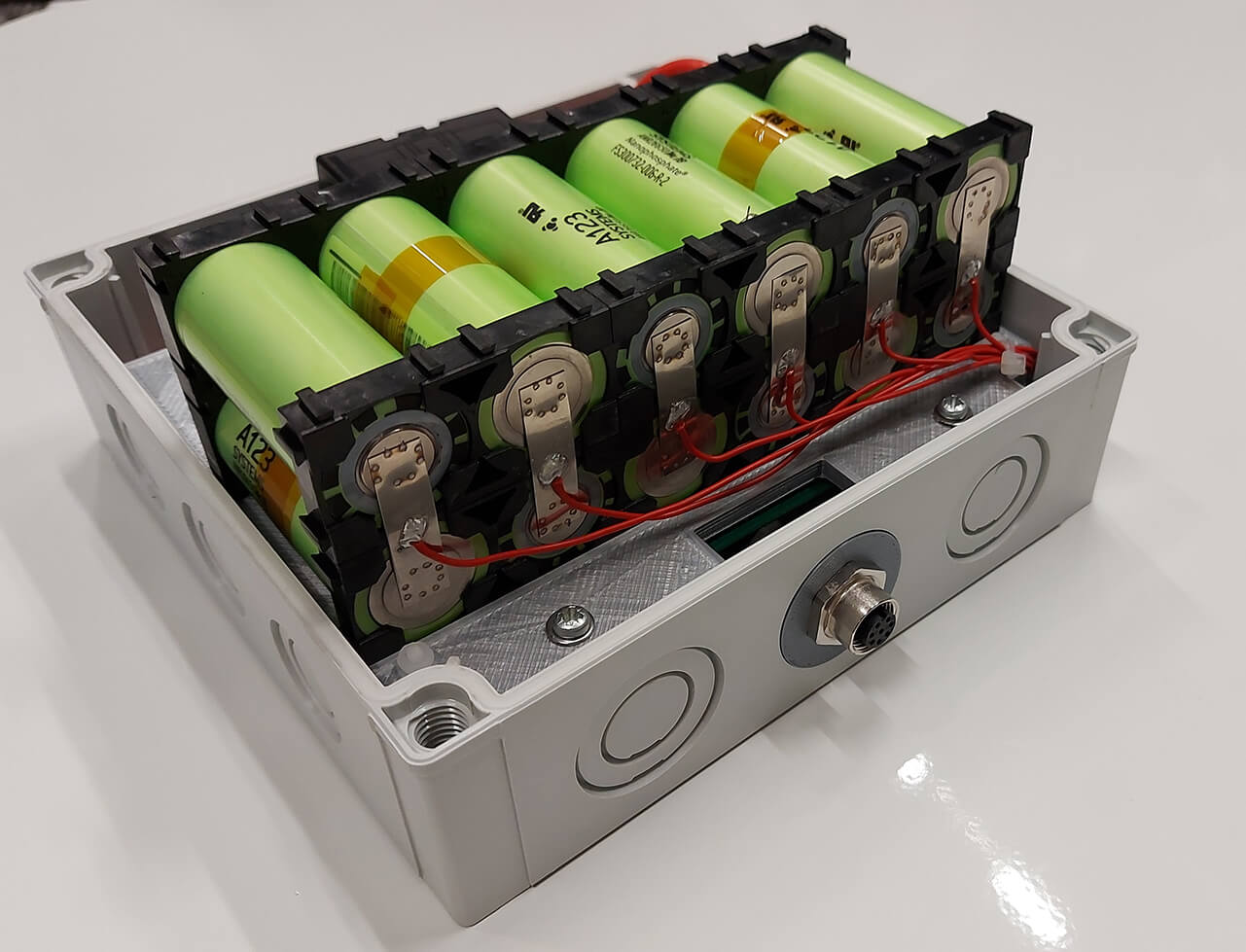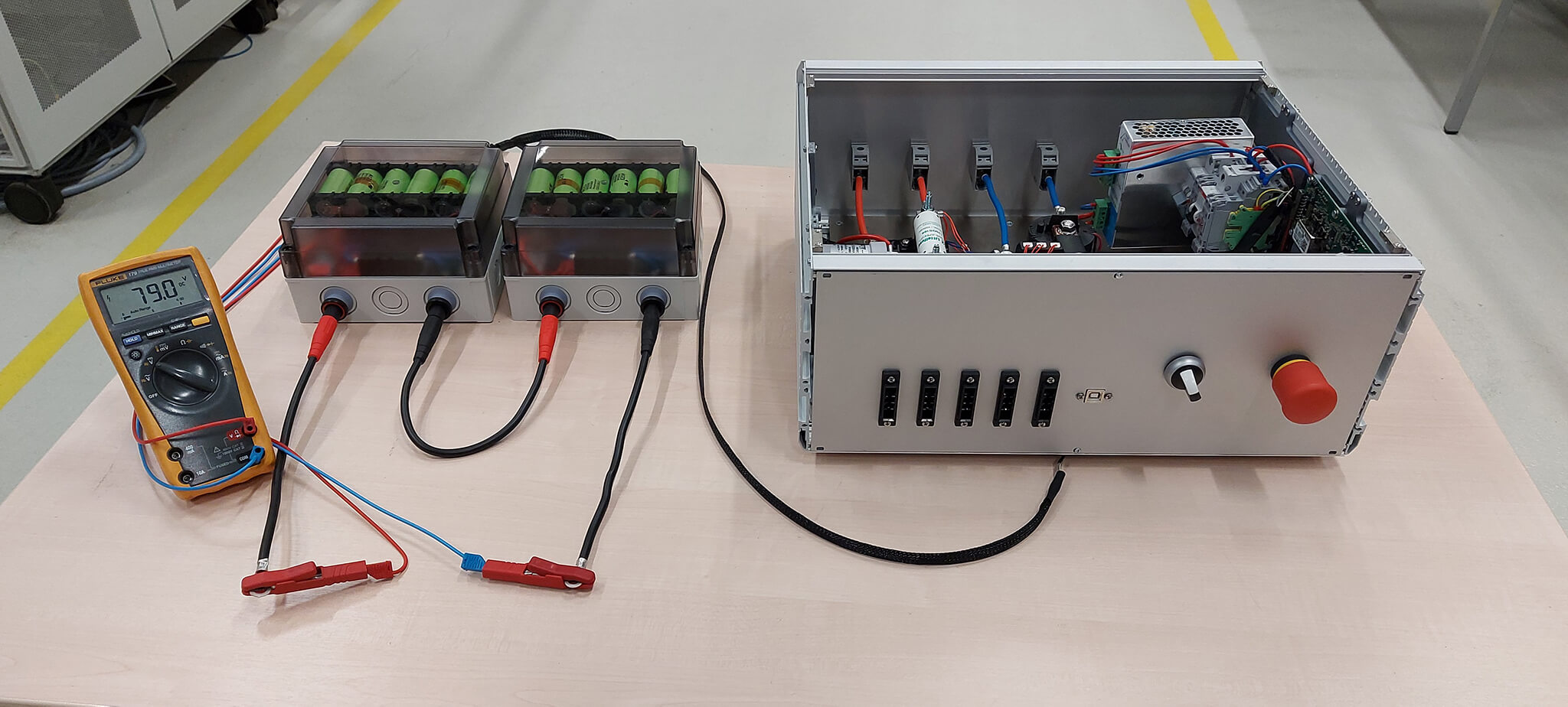| Duration: | 01/2021 - 03/2024 |
| Contracting Authority/ Sponsors: |
This project has received funding from the European Union’s Horizon 2020 research and innovation programme under grant agreement Nº 963542. |
| Project Partners: | Technische Universität Darmstadt; Uppsala University; University of Birmingham; University of Warwick – Warwick Manufacturing Group; Karlsruher Institut für Technologie; Commissariat à l’énergie atomique et aux énergies alternatives; Institute for Energy Technology; Slovak Academy of Science; Fraunhofer-Institut für Solare Energiesysteme; Johnson Matthey PLC; Elkem ASA; Yunasko-Ukraine LLC; Saft Groupe S.A.; Altris AB; TES-Recupyl SAS; Uniresearch B.V. |
| Project Focus: | |
| Website: | SIMBA |
SIMBA - Sodium-Ion and Sodium Metal Batteries for Efficient and Sustainable Next-Generation Energy Storage
Development of a Battery Management System (BMS) for Sodium-Ion Batteries



The "SIMBA" project has the goal of developing a safe and low-cost all-solid-state-sodium battery technology for stationary applications. Reducing the use of critical materials is the core of "SIMBA", which will employ sustainable battery materials, reducing supply risks and restrictions and environmental impact, which are instead currently affecting other technologies, i.e. Lithium-ion batteries.
The unprecedented concept of "SIMBA" is based on the integration of a sodium metal anode in a sodium free assembly architecture including a highly porous support on the anode side, a single-ion conductive composite/hybrid polymer electrolyte and an innovative cathode material.
"SIMBA" gathers a consortium of 16 partners from 6 EU and associated countries having received a funding from the European Commission of 8M €.
Fraunhofer ISE participates in "SIMBA" with the development of a new battery management system (BMS) for sodium-ion batteries. Integrating and evaluating our state-of-charge and state-of-health algorithms will improve the understanding of the cell chemistry and its ageing effects. Fraunhofer ISE will characterize the new batteries, develop models and increase the accuracy in estimating the state parameters. To strengthen the knowledge in future BMS technology Fraunhofer will work on new techniques to build a smart BMS which is integrated in the internet of things. This allows measurement data, aging conditions and maintenance information to be sent directly to the user or manufacturer. Artificial intelligence-powered algorithms can use this information to make better predictions about battery health. Overall, service life can be increased and seamless operation ensured.

